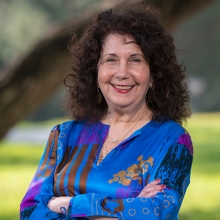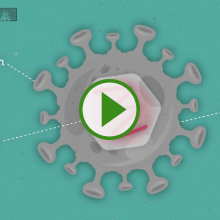Dr. Yuval Ronen
The physics of information transfer
New scientists

Quantum computing has the potential to affect nearly every facet of our lives. Built upon our understanding of quantum physics, which originated from the study of particles on the atomic and sub-atomic levels, the field is expected to be the answer to the quest to keep pace with data storage, information transfer, and vast encryption needs.
The nature of quantum particles and systems, which have the unique ability to achieve superposition (the ability to be in two states at the same time), and entanglement (the proclivity of particles to affect each other no matter how far apart they are) is at the heart of quantum computing. These characteristics enable storage and data transfer through units called quantum bits, also known as qubits, at exponentially higher capacity than classical computers. With such dynamic qualities, quantum computers could potentially solve unwieldy problems from aeronautical calculations to vaccine creation, pharmaceutical production and beyond.
Quantum computing could also conquer modern encryption needs created by the rapidly growing world of cybersecurity through its exceptional code-breaking and code-making abilities. But qubits are very fragile; the slightest interference can result in their collapse. Physicists have come up with the beginning of a solution: quantum error correction codes, or QECCs. These additional codes assure the detection and correction of errors resulting from fluctuations in the system. Far from perfect, QECCs add work, time, and data weight to already-large codes.
To overcome the need for QECCs, Dr. Yuval Ronen, who has joined the Department of Condensed Matter Physics, is investigating the emerging field of topological superconductivity. It is based on the idea that topology, a branch of mathematics now being applied to physics that focuses on special properties of the surface of objects, may offer new species of particles that could eliminate the need for QECCs altogether, and produce a highly effective, stable, and secure quantum code. The topological quality of a qubit allows it to retain information regardless of what is happening in its environment, and, therefore be error-free.
Dr. Ronen is aiming to create this new, more stable species of particle, which would allow a qubit to hold on to “memory,” or information despite outside interference. Ultimately, the stability brought by these “topological qubits” would eliminate the need for QECCs, greatly decreasing the amount of time needed to program quantum computers and increasing the security of the data.
Biosketch
Born in Hod Hasharon, Dr. Ronen completed a double BSc in physics and electrical engineering magna cum laude at Tel-Aviv University in 2009. He then went on to earn an MSc (2011) and PhD (2017) in condensed matter physics at the Weizmann Institute of Science under the guidance of Prof. Moty Heiblum. He is currently finishing a postdoctoral fellowship at Harvard University, and will join the faculty of the Weizmann Institute in 2022.
Dr. Ronen received the Dean’s Prize for MSc students from the Weizmann Institute as well as Weizmann’s 2015 Otto Schwartz Foundation award for excellence in research.
He is married to Lily and they have a three-year-old daughter, Shachaf.








